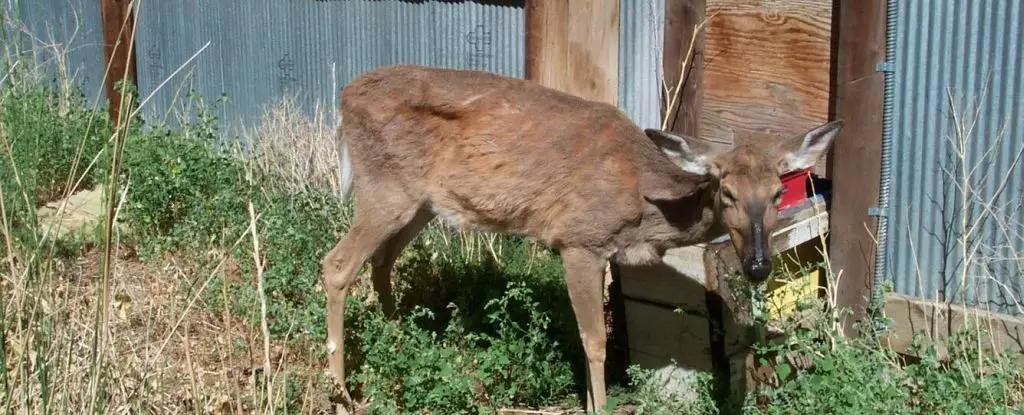Recently, a medical case report has raised concerns about the transmission of a deadly prion disease from deer to humans. Two hunters consumed venison from deer infected with chronic wasting disease, also known as “zombie deer” disease, and tragically lost their lives. This alarming incident has prompted a team of doctors at the University of Texas to investigate the potential zoonotic leap of this prion disease from animals to humans.
Prion diseases, such as Creutzfeldt-Jakob disease in humans, are notoriously terrifying due to the nature of prions. These misfolded proteins propagate the misfolding of other proteins, leading to irreversible damage in the brain tissue. The symptoms of prion diseases mimic accelerated dementia, ultimately resulting in the death of the affected individual. What makes prion diseases even more concerning is the lack of immune response, making it nearly impossible to diagnose in living patients.
Chronic wasting disease primarily affects animals like deer, elk, and moose, with the potential for transmission between species. The disease is thought to spread through bodily fluids such as blood or saliva, either via direct contact or environmental contamination. Shockingly, research has shown that chronic wasting disease can infect mice with human genetic material in laboratory settings, highlighting the risk of cross-species transmission.
Despite the known risks of chronic wasting disease, the consumption of infected animals continues at an alarming rate. Thousands of animals with the disease are consumed annually, with projections indicating a significant increase in consumption every year. This cavalier attitude towards the potential dangers of zoonotic prion diseases underscores the need for public awareness and preventive measures.
The case report detailing the deaths of the two hunters serves as a stark reminder of the possible consequences of consuming meat from animals infected with chronic wasting disease. While it is unclear whether their deaths were directly caused by the prion disease, the proximity of the cases to a known infected population of deer raises concerns about zoonotic transmission. The spread of prion diseases across North America, both in wild populations and farmed deer, underscores the need for further research and vigilance in monitoring potential outbreaks.
The potential threat of zoonotic prion disease from deer to humans cannot be underestimated. The tragic deaths of the two hunters highlight the need for greater awareness of the risks associated with consuming meat from infected animals. As researchers continue to study the transmission of chronic wasting disease and its implications for public health, it is imperative that precautionary measures be taken to prevent future outbreaks. The interconnectedness of human and animal health underscores the importance of understanding and addressing emerging zoonotic diseases.


Leave a Reply